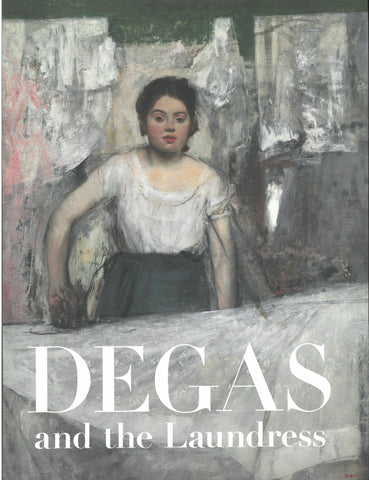by Britany Salsbury, Associate Curator of Prints and Drawings, The Cleveland Museum of Art, with contributions from Richard Thomson, Professor in History of Art, History of Art, Edinburgh College of Art, Aleksandra Bursac, PhD Candidate, University of Toronto, Claire White, Fellow, Director Studies, Girton College, Cambridge, and Gretchen Schultz, Professor, French and Francophone Studies, Brown University
Degas and the Laundress: Women, Work, and Impressionism is the first publication to explore Impressionist artist Edgar Degas’s representations of Parisian laundresses. These working-class women were a visible presence in the city, while washing, ironing, or carrying heavy baskets of clothing. Their job was among the most difficult, dangerous, and poorly paid at the time, forcing some to supplement their income through prostitution. The industry fascinated Degas throughout his long career, beginning in the 1850s and continuing until his final decade of work. The artworks from this series—revolutionary in their emphasis on women’s work, the strenuousness of such
labor, and social class—were featured in Degas’s most significant exhibitions and praised by critics as epitomizing modernity.
This richly illustrated publication accompanies an exhibition that contextualizes Degas’s series with paintings, drawings, and prints by his contemporaries—including Gustave Caillebotte, Berthe Morisot, Pierre-Auguste Renoir, and Henri de Toulouse-Lautrec—as well as artists that he influenced and was influenced by, from Honoré Daumier to Pablo Picasso. Essays by an interdisciplinary range of scholars of art history, literature, and history examine major themes from the exhibition, revealing the widespread interest that Parisians of all social classes had in the topic of laundresses during the late nineteenth century.
242 pagesOctober 2023

